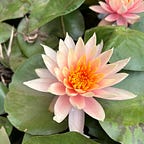Beyond Gravity: A Journey Inside the International Space Station
2 min readFeb 26, 2024
The ISS is a large, habitable spacecraft that orbits Earth. It serves as a microgravity research laboratory, where scientific research is conducted in various fields. It is a joint project involving space agencies from multiple countries, including NASA (United States), Roscosmos (Russia), ESA (European Space Agency), JAXA (Japan Aerospace Exploration Agency), and CSA (Canadian Space Agency).
Interesting Facts about the ISS:
- International Collaboration: The ISS is one of the most collaborative efforts in the history of space exploration, with modules and components built and contributed by multiple countries.
- Microgravity Environment: The ISS provides a microgravity environment that allows scientists to conduct experiments and research that would be impossible or difficult on Earth.
- Modular Design: The ISS consists of interconnected modules, each serving a specific purpose, including laboratories, living quarters, and control centers.
- Continuous Human Presence: Since November 2000, there has been a continuous human presence on the ISS, with astronauts and cosmonauts living and working on board.
- Speed and Orbits: The ISS travels at an average speed of about 28,000 kilometers per hour (17,500 miles per hour) and completes an orbit around Earth approximately every 90 minutes.
- Sunrises and Sunsets: Due to its fast orbit, astronauts on the ISS witness approximately 16 sunrises and sunsets each day.
- Size and Mass: The ISS is large, with a mass of over 420,000 kilograms (925,000 pounds), making it one of the most significant human-made structures in space.
- Research Areas: Scientists aboard the ISS conduct experiments in various fields, including biology, astronomy, physics, medicine, and materials science.
- Spacewalks: Astronauts occasionally perform spacewalks outside the ISS for maintenance, repairs, and to install new equipment.
- Educational Outreach: The ISS engages in educational programs, with astronauts conducting experiments designed by students on Earth and interacting with students through live communications.
Understanding the ISS and its role in advancing scientific knowledge and international cooperation is essential for appreciating the ongoing efforts in space exploration.
